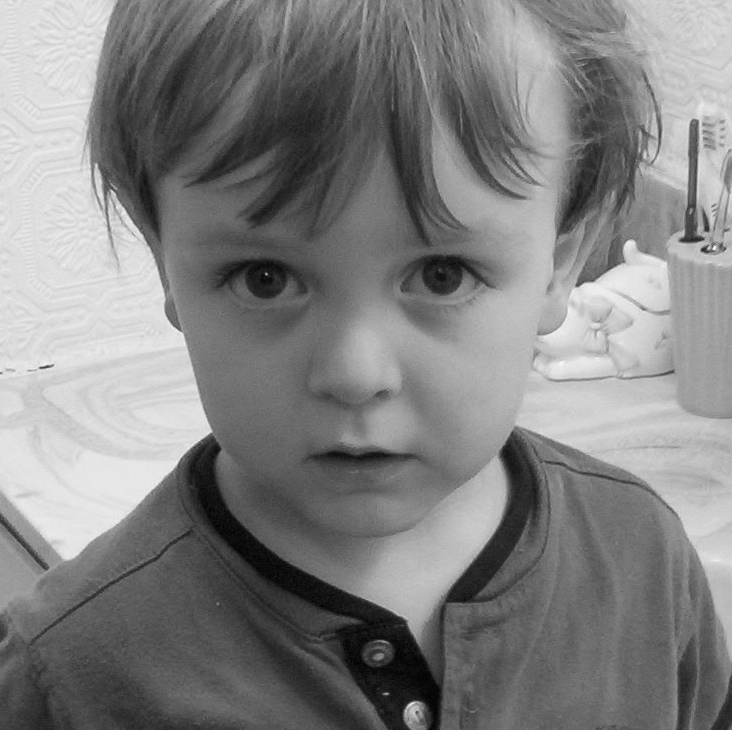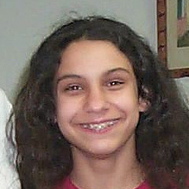
thomas leverett weblog
Monday, January 24, 2011
Monday, January 17, 2011
thank you for your cupertino
OK so it started with that first article: Mr. Zimmer says that Cupertinos, which are wrong words offered by your spell-checker, have been around for a while, are increasing due to the frequency of mobile devices, and have the capacity to be very interesting. It also comes out in digging up the history, that the name Cupertino, though a city in California that is ironically the home of Apple, has been the name for these (I have called them spell-check absurdities) since long ago, when in Europe, early spell-checks did not have the unhyphenated cooperation and could only change it to Cupertino...read it and weep.The series of articles brings up a number of points, besides his, which I generally agree with. I in fact have been studying this phenomenon for a while with a couple of added twists: that spell-check was not made for international learners, and in fact has trouble with their irregular data; that spell-check and grammar-check influence not only their writing but also their learning, that there is such a thing as a grammar cupertino (you read it here first)...and finally that the changing world of correction algorithms will influence the world for years to come but will probably help our students last, since their errors are so uncommon yet at the same time systematic and egregious.
Let's take the last one first. Granted, their algorithms are more sophisticated than they used to be: that's why it's hard for us to believe, today, that a computer could mistake Cupertino for cooperation. One of the best examples is when it changes definately to defiantly because the algorithm says, reverse the letters first, before you assume that they got the wrong vowel. But that algorithm can be changed if, 99% of the time, they got the wrong vowel. And their data shows that that is in fact what is happening. I won't go into why what our students type in is so different from what your average American poor-speller types in. Therein, however, lies the rub.
Here's a grammar cupertino. Student types in "We like each others." Grammar-check checks with its loads of data, and comes back and says, 99% of times when each other has an -s, it has an apostrophe. Student changes it, on advice, to "We like each other's"...We now have a grammatical structure that is legitimate (in its own right) - but absolutely in the wrong place, and not what the student means. It creates an error the teacher has no idea how to deal with (What does he mean? Where did the apostrophe come from?) - and one that would never have been generated naturally by other means.
Why do I refuse to capitalize cupertino? Well, if I ever go to the city, I'll capitalize it. But I think, if we're talking about words, and it's a word, we're better off if we just bring it down to my level right from the start. I'd never heard the word until this weekend, but I was delighted to find it, because, as I've said, it's up my alley in terms of what I study. Which reminds me, a whole vacation I spent restoring my own work - dozens of articles, some of them antiquated; nonetheless, if you're interested, read 'em & weep. The newest, Negotiate with the elephant, is on this very topic; I just wrote it, what, maybe Tuesday. My wife suspected that it was about living with someone who wouldn't lose weight, but I disabused her of that misperception.
Zimmer, B (2011, Jan. 13). Auto (in)correct. New York Times Magazine. http://www.nytimes.com/2011/01/16/magazine/16FOB-onlanguage-t.html?_r=1. Accessed 1-11.
Zimmer, B. (2006, Oct. 2). The Cupertino effect strikes again. Language Log. http://itre.cis.upenn.edu/~myl/languagelog/archives/003629.html. Accessed 1-11.
Zimmer, B. (2007). When Spellcheckers Attack: Perils of the Cupertino effect. OUPblog (Oxford University Press): From A to Zimmer. http://blog.oup.com/2007/11/spellchecker/. Accessed 1-11.
Labels: grammar
Saturday, January 15, 2011
more on Tunisia
Lynch, M. (2011, Jan. 15). Tunisia and the new Arab media space. Abu Aardvark's Middle East blog. http://lynch.foreignpolicy.com/posts/2011/01/15/tunisia_and_the_new_arab_media_space.Zuckerman, E. (2011, Jan. 14). The First Twitter Revolution? Foreign Policy. http://www.foreignpolicy.com/articles/2011/01/14/the_first_twitter_revolution
Labels: twitter
dialects of araby
The world watches Tunisia because people are gathering in front of the presidential palace; the president leaves; it's a revolution, and it appears to have been spawned or at least encouraged by Facebook, Twitter and the social media. But there are some key differences between what's happening in Tunisia and what happened in Iran a summer or two back. One: the government won in Iran, leading everyone to deny that they were ever on Twitter, ever fomented anything, ever had anything to do with the social media. Two: very few of us understood Farsi, so we saw people in the street but had very little idea what they were saying. Of course, we don't understand Tunisian Arabic either, though some know French...well, you get the idea; we're trying to figure out what's going on; we're bystanders.Now I do know a little about Araby, also known as ASCII Arabic, Chat Arabic, or the Arabic Chat Alphabet (see below). Our Saudi students often write their chat in entirely English letters and numbers (I often called it 3/5/7 chat, though it has more than three numbers in it), regardless of the fact that they would be at computers where everyone had Arabic script on both sides, without question. Long after all computers could switch over to Arabic script, on Facebook, in computer labs and elsewhere, some young Saudis and Arabic speakers preferred to use Araby....even on Facebook, even in the more permanent media.
So now here comes the interesting part. One watches the Tunisians reply on Facebook and comment about the overthrow of their government. Their Araby is clearly different from Saudi-dialect Araby; it's thoroughly mixed with French, and influenced by French. It's a chat dialect, and it raises a lot of questions to me as I try to interpret chat dialects. I've interviewed students about Araby, but I believe I've misplaced my notes; I'm not sure I can recall them. Here are some of the interesting questions I've been mulling over:
There is an obvious element of choice, when to use it, when to use standard Arabic, or (in the case of Tunisians), when to simply use French or another common language. How is this choice made? Why are so many still choosing Araby?
How different is Tunisian Araby really from other dialects of Araby? Something I read stated that Araby was started really, and was extremely popular, in Lebanon and Jordan. But I'm curious: does it exist in the entire Arabic world? And in what populations is it most popular? Its obvious association with the west would make me believe that, as people have told me: it's the young; it's the westward-leaning; it's hip and modern, and, yes, the older generation doesn't understand it.
Palfreyman says at one point that the Ascii Arabic dialects are considered the best windows into local dialects of Arabic, which are generally written in standard Arabic only, and thus not really represented as they are spoken. Would it be possible that Araby gives the writer a better shot at writing as he/she speaks (given, of course, that both speakers know all letters/numbers, and are willing to use it)?
As I stick my nose in Tunisians' business I'll be watching for these answers and will try to put it in writing. I can say one thing: messages are coming into some Facebook sites rapidly, several a minute. The messages themselves, intended for the widest possible audience, are rarely in Araby; the comments often are. I haven't been on Twitter much; I'll try to report on that too. Stay tuned.
Leverett, T. (2008). Asciized chat, thomas leverett weblog. http://tomleveretts.blogspot.com/2008/10/asciiized-chat.html.
Palfreyman, D. and al Khalil, M. (2003, Nov.). "A Funky Language for Teenzz to Use": Representing Gulf Arabic in Instant Messaging. Journal of Computer-Mediated Communication 9 (1). http://jcmc.indiana.edu/vol9/issue1/palfreyman.html. Accessed 10-08.
Arabic chat alphabet, Wikipedia. http://en.wikipedia.org/wiki/Arabic_chat_alphabet
3arabi, Arabic chat to English translator. http://3arabi.site.co.il/
Thursday, January 06, 2011
Grammar technology survey
Teachers! Learners! I need you both! I need your honest opinion about the kinds of grammar technology that are part of our everyday world. These include:electronic bilingual dictionaries
Spell-check, which is part of Word, built in to most programs
Grammar-check, which is also part of Word, but easier to ignore, since the lines are green, instead of red;
Online grammar-check helpers, such as Microsoft's ESL Assistant, offered to students for free;
Online language translators, which take entire bodies of text and translate them, word for word
Learners - have you been learning for long? I need your honest opinions. Thanks for helping! If you'd like to see the results, write!
Click here to take Grammar technology/Learners survey
Teachers - bear with me, this is my first survey, but I need your opinions. Thanks for helping! If you'd like to see the results, write!
Click here to take Grammar technology/Teacher's survey
Monday, January 03, 2011
publications
These have now appeared online:Leverett, T. (2010, June). Add me: Facebook and the international student. Global Study Magazine, 6, 1, pp. 66=69. Available online: http://www.globalstudymagazine.com/site/articles/507/.
Leverett, T. (2009, Sept.). Zoom in, zoom out. Global Study Magazine, 5, 3. Available online: http://www.globalstudymagazine.com/site/articles/507/.
There is a very recent one that I'm still looking for; it hasn't been published yet, that I know of.
Saturday, January 01, 2011
articles
Bounds, G. (2010,) How handwriting trains the brain, Wall Street Journal Online. http://online.wsj.com/article/SB10001424052748704631504575531932754922518.html. Accessed 1-11.Neary, L. (2010, Dec. 15). Kids books make the leap off the page and online. NPR. http://www.npr.org/2010/12/15/132057619/kids-books-make-the-leap-off-the-page-and-online. Accessed 1-11.
Social networking 'damaging schoolwork', say teachers. (2010, Nov. 10). BBC. http://www.bbc.co.uk/news/education-11797511. Accessed 1-11.
Hoffman, J. (2010, Dec. 4). As Bullies Go Digital, Parents Play Catch-Up. New York Times. http://www.nytimes.com/2010/12/05/us/05bully.html?_r=2&ref=facebook_inc. Accessed 1-11.























































